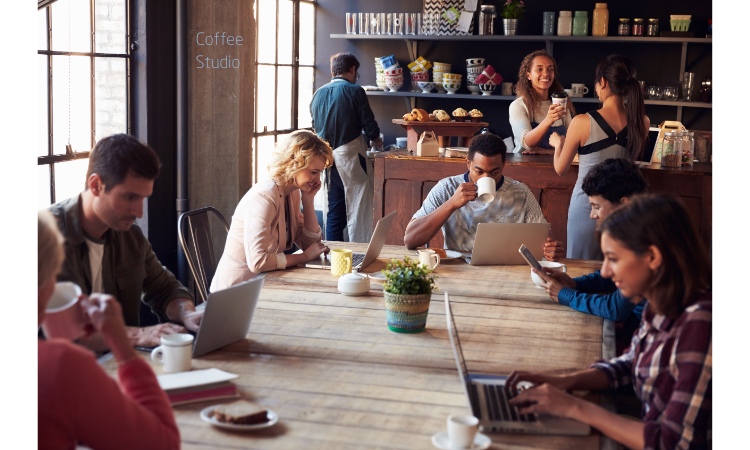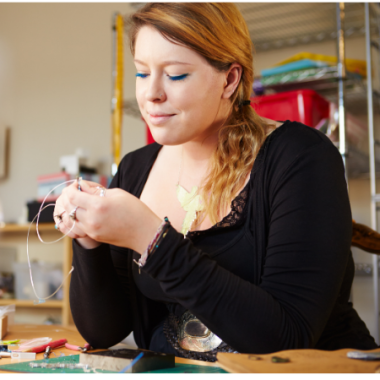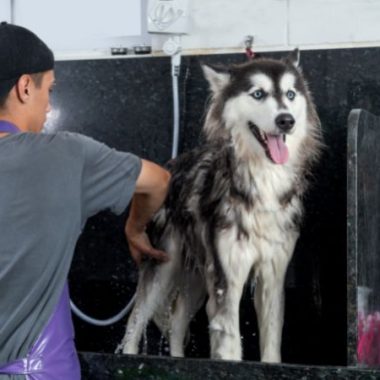In a coffee shop, trained baristas brew and serve specialty coffee made from various coffee beans. Often served alongside other hot & cold drinks and light snacks such as pastries & cakes.
In 2024 there is an estimated 24,000 coffee shops in the UK, dominated by the 4 big brands, Greggs, Starbucks, Costa & Caffè Nero.
Here we provide information important to starting up and running a coffee shop. Describing some of the available courses, current market trends and specialist equipment.
Qualifications and skills
- Caffè & Co. offers a comprehensive How to Open a Successful Coffee Shop course, designed to guide aspiring entrepreneurs through every step of the journey. This hands-on training includes:
- One-day theory session covering essentials like business planning, selecting the perfect location, setting up your shop, and understanding legal requirements.
- Practical barista training over one and a half days, ensuring you’re confident in delivering quality coffee and customer service.
Courses are held regularly in Prescot, Merseyside, starting at just £650. To find out more, visit caffeandco.com.
- Barista training provided by commercial coffee machine manufacturers and suppliers. Go to caffesociety.co.uk/barista-training and www.matthewalgie.com/online-training/ for examples.
- The Coffee Skills Program, offered by the Specialty Coffee Association (SCA), is perfect for anyone passionate about the coffee industry. This comprehensive program is structured into six key modules:
- Introduction to Coffee
- Barista Skills
- Brewing
- Green Coffee
- Roasting
- Sensory Skills
For more information on the program, visit SCA Education. To find SCA-approved training providers, check out Dark Woods Coffee or Origin Coffee for practical, high-quality courses.
- Limini Coffee offers a practical and insightful How to Start a Coffee Shop course to set you on the right track. This two-day course covers everything you need to know, including:
- Barista training to master coffee-making skills.
- Guidance on coffee shop layout and choosing the right barista equipment.
- Essential business knowledge, including food business registration, profit margins, and crafting the ideal food and drink range.
Held at Limini Coffee’s facilities in Cleckheaton, West Yorkshire, this course provides hands-on expertise for budding coffee shop owners. For more details, visit www.liminicoffee.co.uk/how-to-start-a-coffee-shop.
Current Market trends
- ‘The Independents Report UK 2024’ published by World Coffee Portal revealed that there were around 12,200 independent coffee shops in the UK, a year-on-year increase of 2.2%. Approximately three-quarters of independents reported increased sales, with 30% seeing growth of over 5%. Beverage quality, authenticity, personalised service and localness were key determinants for customer retention and vital differentiators from branded coffee chains (www.worldcoffeeportal.com/Latest/News/2024/March/Quality-and-authenticity-key-to-UK-independent-cof).
- Figures published by the National Coffee Association revealed that interest in cold brew coffee had increased by 300% since 2016 and that Cold brew coffee was also predicted to increase in popularity in 2024. With plant-based drinks such as chicory root, matcha and mushroom coffee also predicted to increase in popularity (www.countryandtownhouse.com/food-and-drink/coffee-trends-for-2024/).
- the average cost per cup is £3.40 and around 1 in 6 adults visit a coffee shop daily. People aged between 20 and 37 years account for 50% of coffee consumed in coffee shops, bars or restaurants (https://freshground.co.uk/learning-hub/why-is-a-takeaway-coffee-so-expensive/).
- According to the British Coffee Association, 98 million cups of coffee were consumed in the UK in 2023. Latte is the most popular coffee drink, followed by americano and cappuccino. Other popular coffee drinks include flat white and espresso (https://balancecoffee.co.uk/blogs/blog/coffee-consumption-statistics-uk).
- In 2024, oat milk was the most popular alternative to milk. One in three adults in the UK now drink plant-based milk. (https://freshground.co.uk/learning-hub/oat-milks-rise-in-the-coffee-world-why-baristas-love-it/).
Specialist equipment
Examples of specialist grinding & brewing equipment and barista tools used in coffee shops are as follows (prices are inclusive of VAT):
- Commercial bean-to-cup coffee machines (from £2,700 to £6,000).
- Coffee grinder (from £250 to £2,500).
- Tampers, levelling tools, jugs and thermometer clips (start from around £25 to £60).
- Commercial filter coffee machine (from £400 to £900).
Equipment and tools are available form specialist suppliers such as:
Hopefully this Coffee Shop overview has been both useful and motivating.
Purchase almost any of the business registration packages on our site and you will receive a full comprehensive business insight report on your chosen field. The full report gives vital information on trade bodies, Food Business registration, promoting your coffee shop, insurance and other industry resources.
If you’re not ready to start but would like to secure your name for the future use check out our reserve company name product, this will also include the industry report.
Just one more thing……. every month we give away the best business books, downloads and templates in our newsletters. Sign up below








